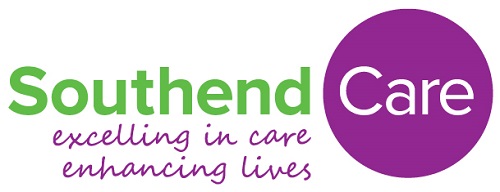How TAPPI Changed us – Southend Care

Following completion of the second Phase of the TAPPI project, Southend Care, one of the six TAPPI testbeds, tells us in this short Q&A how TAPPI influenced their work, the work of their staff and the everyday life of their residents.
What are the key lessons and insights that you have gained by implementing the TAPPI principles throughout the project? How have these lessons influenced your approach to technology enabled care in housing for older and vulnerable people?
One of the key lessons has been to have independent experts on the journey with us. This has helped by advising what works best for the tenants and service. What works best for us as a company ensuring that we focus on quality whilst being person centred.
It has been a challenging time with connectivity but again experts in this field have given sound advice.
One data platform has really been beneficial, this has made the process less daunting for staff to understand and work with.
Can you share any specific success stories or notable achievements from your experience with the TAPPI project? How have these outcomes improved the lives of your tenants, and the work of your staff?
GPS trackers have made a fantastic contribution to giving tenants a sense of freedom with the added bonus of having security and piece of mind when out in the community.
Having sleep sensor mats has really benefitted the tenants concerned. We have been able to work with them regarding their health outcomes for some of them we have been able to work with them to reduce or remove this issue.
We have also been able to identify reducing care packages while still maintaining the tenants’ current lifestyle.
Based on the learnings and outcomes of the TAPPI project, what recommendations or best practices would you suggest for future initiatives focused on technology enabled care in housing for older and vulnerable people?
Co-production with local councils, which should include their brokage system. When matching new people to services it should include technology as standard. This would enable us to match people who may benefit from technology or to support them with specific health needs.
Technology should be available in other formats to enable all people to understand i.e. easy read, large print, etc.
What has your experience of co-production with your residents been like throughout the project? And (how) do you intend to continue co-producing with them after the end of the project?
Unfortunately this proved to be an issue due to the disability of some of our tenants. With the client group that could engage there was not much uptake.
This might have been due to age or fabric of the buildings as we are still struggling with connectivity issues.
More time to spend with tenants around co-production, more time for staff to understand what can be achieved.
Looking towards the future, what plans or recommendations do you have for sustaining and expanding the adoption of the TAPPI principles beyond the project's conclusion? How do you envision scaling up the successful practices and innovations developed during the project?
As a company we have already agreed to continue with this technology in tenanted services. We are introducing it into the residential side and will be looking to see if we can utilise some of the devices in our community services.
Joan Constable Tenanted Services Manager Southend Care Ltd.
Throughout the second Phase of the TAPPI programme, the 6 testbeds have given us regular updates published in Q&As form:
- TAPPI Phase 2 - Q&A with Southend Care
Six months after their recruitment as one of the six TAPPI testbeds, Southend Care gives us an update on their project in this short Q&A. - TAPPI Phase 2 - Introducing Southend Care
A short Q&A introducing Southend Care, one of the six successful TAPPI2 ‘testbeds’.
